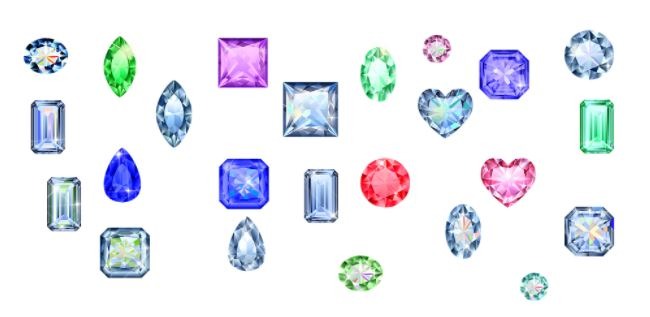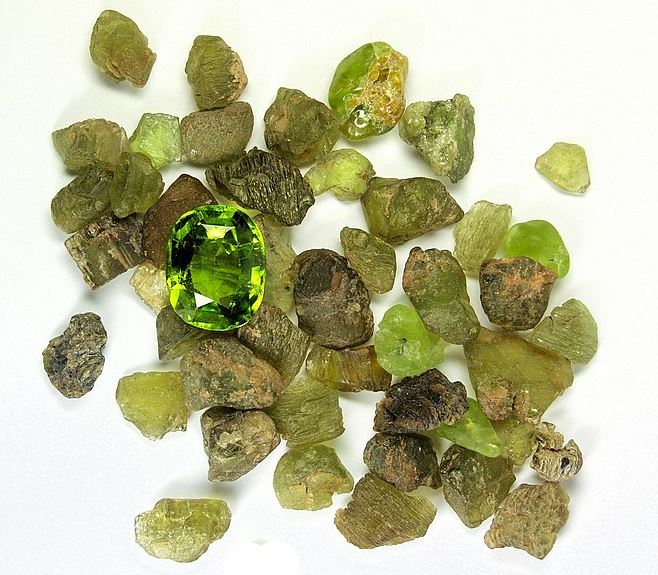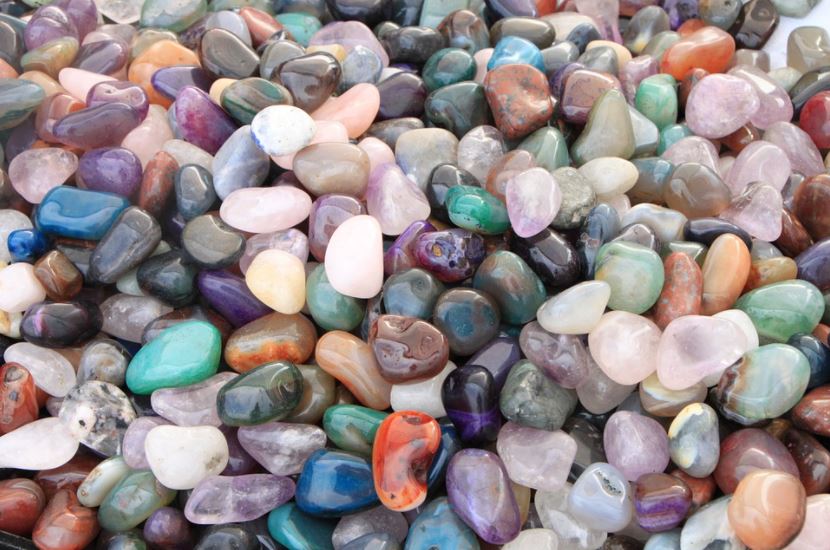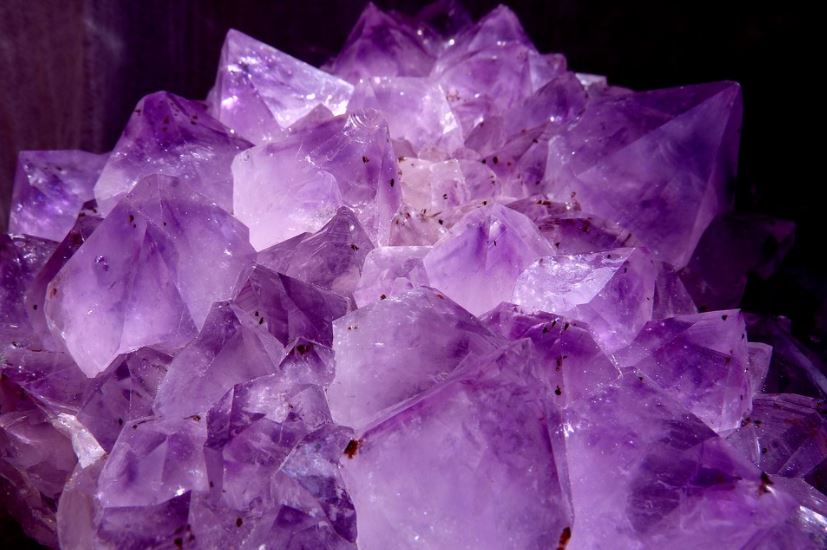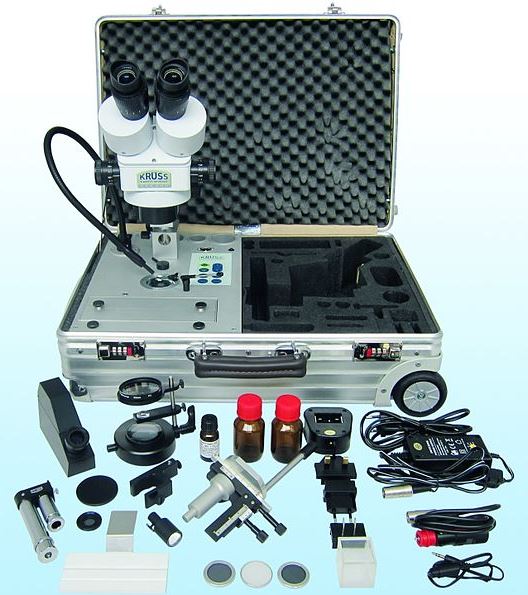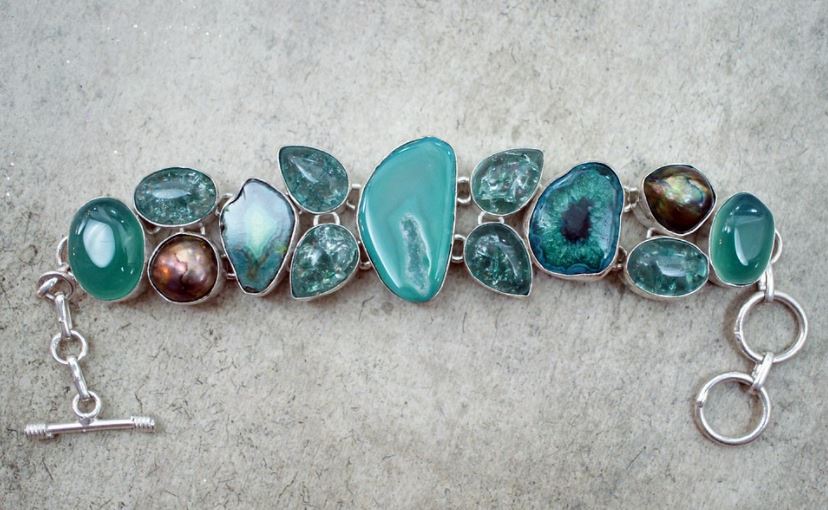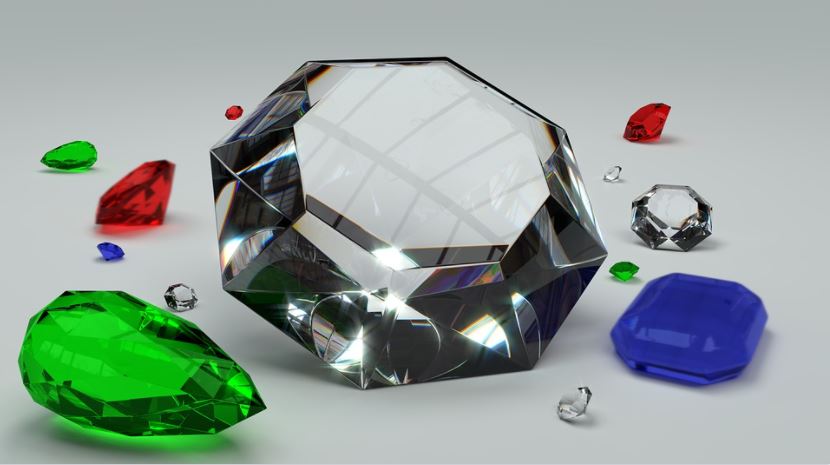Those who are interested in jewelry would surely love to read above gemstones and their experts, gemologists. Are you one of them? Scroll through and learn some interesting facts about gemology!
Before jumping straight to the main topic, you should know what basically gemology is, its background and how visiting a gemologist to buy or sell the precious stones can benefit you. Also, get to know how to play pokies online real money australia.
What is Gemology?
Gemmology or gemology is a study that deals with gemstone materials, including natural and artificial. Basically, it is a branch of mineralogy and is geoscience.
Although gemology is mainly about cutting, valuing and studying the precious stones; however, the essence of this science is to identify the gems.
An expert who is master in this field is known as gemologist. Besides, goldsmiths and jewelers can also be gemologists.
Background
The basic education about gems and gemologists was started in the nineteenth century. However, the National Association of Goldsmiths of Great Britain (NAG) formed a committee in 1908, and after that the initial qualifications were instigated. The committee later turned into Gem-A, also known as the Gemmological Association of Great Britain. Now, it has matured into an accredited awarding body and educational charity that is benefiting students from all over the world. In 1929, a student named Robert Shipley was the first person to earn diploma course from Gem-A. Later, he established the American Gem Society and Gemological Institute of America. Fortunately, now you can see a lot of certified programs offered by reputed institutes globally. You can also check out www.newzealandcasinos.io if you want to know the best online casinos in New Zealand.
Understanding Gemology
The science of gems helps in revealing the specific properties and characteristics of a gemstone, like its quality, color, clarity and cut. Some gems are hard to distinguish apparently, but have different properties. That’s when a gemologist can rescue!
Who is a Gemologist?
As the name suggests, gemologist is an expert of gems. Someone who grades, identifies and appraises gemstones.
Why Should You Visit a Gemologist?
There are many times in life when we come across a jewelry piece with stones and are unable to identify if it is real or imitation. If you have experienced a similar situation, then I’m giving you a few good reasons to visit a gemologist. Have a look
1. They Know the Drill
A layman might not be able to identify, evaluate or recognize a gemstone with the naked eye. Even after using a special scope, you may not get the exact details. An expert gemologist can serve you in this case! Either he would tell you about a stone just by looking at it closely or use special techniques for it. Whatever the procedure is, you are sure to get the needed information.
2. They Are Reliable
Gemologist are certified professionals who have wealth of knowledge about precious stones. Hence, customers can rely on their report or analysis of a particular gem.
3. They Can Evaluate Exact Value of Gemstones
Do you want to sell a gemstone that you no longer need but unsure of its price? A gemologist can help! It is a requirement of their profession to stay updated about the happenings in the world of gems either through investment markets, newsletters or industry journals. Therefore, they are the best people to ask for the exact selling or buying value of any stone.
4. They Are Trained for Perfect Stone Grading
Gemstone grading is crucial and not everyone’s cup of tea. Good news is that; gemologist can perfectly get the grading done for you! They are trained professionally for colored stone grading. The training mostly includes diamond grading as well.
5. They Can Describe the Characteristics of Your Desired Gemstone
Some people are interested in learning about gemstones but don’t get enough information on the internet. If you are also one of them, then you should visit a gemologist and get benefited from his/her knowledge. No one can explain you about the properties or characteristics of a precious stone better than them. They can even reveal some interesting facts about rare gems that can amaze you!
6. They Can Tell You About the Origin of Any Gemstone
Do you know that a professional gemologist can discover the origin of a particular stone during the evaluation exam? Yes, that’s true! These experts can also categorize gems based on their refractive index, specific gravity or crystal structure.
7. They Can Discriminate Between Authentic or Synthetic
With the evolution of glamour; several jewelry pieces with fake stones are available in the market that are not just affordable but are equally beautiful like the real one. In fact, sometimes it is not possible to discriminate between the two even after looking closely. Be aware because it’s an easy way for the sellers to cheat the customers. Fret not! A gemologist can dig out the truth and won’t let you get deceived. The professional can easily identify if the stone is color-enhanced, synthetic, natural, treated or damaged. They can even access the quality of any gem.
8. They Get Précised Measurements
A professional gemologist is able to take precise measurements till the 1/100th of a millimeter. Moreover, they can also evaluate the carat weight of any stone.
9. They Own Special Tools
In order to verify the size, shape and color of the gem; gemologists use certain computerized tools and grading equipment, including microscope, micrometer, refractometer and more. Therefore, in order to get accurate results; you need to take your precious stones to the specialists that have right appliances to do the job.
Types of Tools Use By Gemologists
If you are interested in knowing about the gemologist’s tools in detail, then here is the list.
- Microscope: the equipment is used for the identification of a gem and for internal or external examination. Moreover, a microscope is also used in stone grading at 10x magnification. However, for determinants and treatment of characteristics; high power is utilized.
- Loupe: loupe is a handheld magnification appliance that is ideal for grading and identification for certain gemstones. However, making the right use of loupe is significant. You need to hold the equipment in the left hand with a close eye. Use your right hand to bring the stone up-close with the help of a tweezer. Set the focus to get perfect, clear view.
- Micrometer: To ensure accurate measurements, micrometer is utilized. It helps in evaluating total depth, width, length and average girdle diameter, etc.
- Refractometer: as the name suggests, refractometer is the tool to measure RI or refractive index that is an important indicator to determine the quality and identity of a gem. Also, it can measure the optic sign.
- Spectroscope: this scope can capture the type and amount of light absorbed by a stone. Two different kinds of spectroscope are used for the process – prism and diffraction grating.
- Polariscope: the next one is to evaluate the optic properties of a gemstone. It is used to check whether the stone is natural or synthetic.
- Heavy liquids: Apart from appliances, gemologists also have heavy liquids to discover stone’s specific gravity. For successful gemstone immersion, loose or unmounted stones are used.
Careers in Gemology
Now that you know all the basics about gemology and gemologists, it is the time to know the career opportunities you can get in this field of study. Luckily, a lot of options are available these days, so you can choose what interest you the most!
This will also help you learn about different types of professionals and their jobs. Therefore, you can consult the relevant person for your needs, related to the precious metals.
1. Appraiser
- Determine valuation
- Write detail description of a gem
- Evaluate stones, contemporary or antique jewelry pieces and fine watches.
2. Auction Specialist
- Oversee the pieces that come for buying and selling process to lookout minor details of the stone.
- Determine the quality and worth of a gem.
3. Bench Jeweler:
- Repair and manufacture fine jewelry by utilizing his expert techniques and craftsmanship skills.
4. Buyer:
- A person who closely monitors the consumer trends and industry.
- Sells out finished jewelry pieces and gems to sell them profitably.
5. Jewelry Designer:
- Able to create unique jewelry designs with precious gemstones in them.
- Customize the pieces as per client’s requirements
6. Lab and Research:
- Investigates new stone finds
- Aids in treatment processes
- Handles all the laboratory work.
7. Retailer:
- Involve in retail sale of gemstones and jewelry
It is a fast-pacing career that can be exciting, rewarding and lucrative.
8. Wholesaler
- Import and then sell colored stones, diamonds, finished jewelry, watches and cultural pearls.
- The business is widespread throughout the globe.
Things To Remember
- Ensure that the gemologist, you are paying a visit, has to be a third party.
- A third party expert will be an impartial gem observer, and would not stake in sales.
- It is ideal to have basic knowledge about gems before visiting a gemologist in order to verify the results.
Overview
Gemologists are the doctors of precious metals. Just like a human doctor, they are able to check their patients (gems) thoroughly and evaluate a lot (almost everything) about their condition. You can see gemologist working in retail jewelry shops, manufacturing organizations and in gemological labs using their knowledge and benefiting the relevant industry.
There are a lot of reasons to consult a gemologist for your precious metals or even for learning purposes. They can accurately discover the origin, quality, weight, type, identification, properties and characteristics of a gemstone with the help of some powerful tools and their knowledge.

